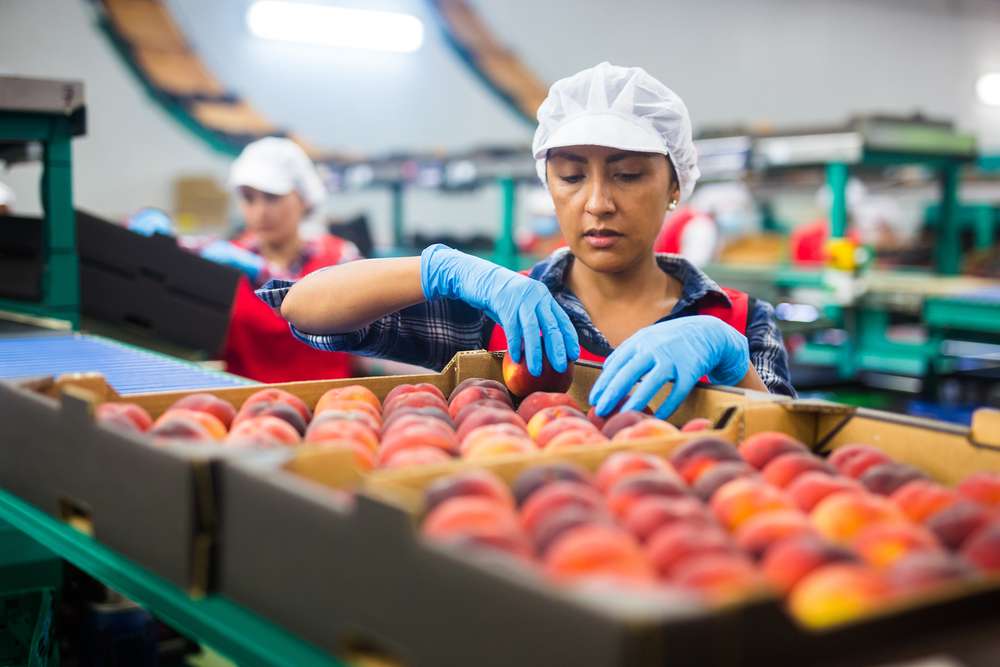Egg Packing Jobs: A Comprehensive Guide to Careers in Food Production
Egg packing jobs play a crucial role in the food industry, ensuring that one of the world's most popular protein sources reaches consumers safely and efficiently. These positions involve working in food production facilities where eggs are sorted, graded, and packaged for distribution to grocery stores, restaurants, and other food service establishments. As the demand for eggs continues to grow, so does the need for skilled workers in this field. This article will explore the various aspects of egg packing jobs, including responsibilities, qualifications, and career prospects.

The job can be physically demanding, often requiring workers to stand for long periods and perform repetitive tasks. Attention to detail is crucial, as even small mistakes can lead to contamination or product waste. Egg packers must also be comfortable working in a fast-paced environment, as production lines typically operate at high speeds to meet demand.
What qualifications are needed for egg packing jobs?
While formal education requirements for egg packing jobs are typically minimal, there are several qualifications and skills that employers look for in potential candidates:
-
High school diploma or equivalent: Most entry-level positions require at least a high school education.
-
Physical stamina: The ability to stand for extended periods and perform repetitive tasks is essential.
-
Attention to detail: Identifying defects or irregularities in eggs is a crucial part of the job.
-
Basic math skills: Workers may need to count eggs, record quantities, and perform simple calculations.
-
Food safety knowledge: Understanding basic food safety principles is important for maintaining hygiene standards.
-
Teamwork: Egg packing often involves working closely with others on a production line.
-
Reliability: Punctuality and consistent attendance are crucial in a production environment.
Some employers may provide on-the-job training for new hires, while others may prefer candidates with previous experience in food production or packaging roles.
How does the egg packing process work in a factory setting?
The egg packing process in a factory setting is a highly automated and efficient operation. Here’s an overview of the typical steps involved:
-
Egg collection: Eggs are collected from farms and transported to the packing facility.
-
Washing and sanitizing: Eggs are cleaned and sanitized to remove any dirt or contaminants.
-
Candling: Eggs pass through a light source that allows workers to inspect for cracks or internal defects.
-
Grading: Eggs are sorted by size and quality using automated grading machines.
-
Packaging: Graded eggs are carefully placed into cartons or larger containers.
-
Labeling: Packages are labeled with necessary information such as size, grade, and expiration date.
-
Storage and distribution: Packed eggs are stored in temperature-controlled areas before being shipped to retailers.
Throughout this process, egg packers play a vital role in ensuring that each step is carried out correctly and efficiently. They monitor the equipment, perform quality checks, and intervene when necessary to maintain the smooth flow of production.
What are the career prospects in egg packing and food production?
Egg packing jobs can serve as an entry point into the broader field of food production. While starting positions may be at the lower end of the wage scale, there are opportunities for advancement within the industry. With experience and additional training, workers can progress to roles such as:
-
Line supervisor or team leader
-
Quality control inspector
-
Production manager
-
Food safety coordinator
-
Logistics and distribution specialist
The food production industry, including egg processing, offers relatively stable employment prospects due to the constant demand for food products. As technology continues to advance, workers who are adaptable and willing to learn new skills may find additional opportunities for career growth.
What are the challenges and benefits of working in egg packing?
Like any job, egg packing comes with its own set of challenges and benefits:
Challenges:
-
Physical demands of standing and performing repetitive tasks
-
Fast-paced work environment with production quotas
-
Potential exposure to cold temperatures in storage areas
-
Strict adherence to food safety regulations and hygiene standards
Benefits:
-
Stable employment in the essential food production industry
-
Opportunities for advancement within the company or sector
-
Development of valuable skills in food handling and quality control
-
Potential for shift work, which can offer flexibility for some individuals
-
Satisfaction of contributing to the food supply chain
How does egg packaging contribute to food safety and quality?
Proper egg packaging plays a crucial role in maintaining food safety and quality throughout the supply chain. The packaging process helps to:
-
Protect eggs from physical damage during transport and handling
-
Prevent contamination by sealing eggs in clean, sanitized containers
-
Maintain freshness by providing a barrier against air and moisture
-
Ensure traceability through proper labeling and dating
-
Facilitate efficient storage and distribution
Egg packers are at the forefront of these efforts, ensuring that each step of the packaging process meets stringent quality and safety standards. Their attention to detail and adherence to protocols help to minimize the risk of foodborne illnesses and maintain the integrity of the product from farm to table.
In conclusion, egg packing jobs offer a gateway into the food production industry, providing essential services in the distribution of a staple food item. While the work can be challenging, it offers stability and the potential for career growth. As the demand for eggs continues to rise globally, the role of egg packers remains crucial in ensuring that consumers receive high-quality, safe products. For those interested in food production and willing to work in a fast-paced environment, egg packing can be a rewarding career choice with opportunities for advancement and skill development.






